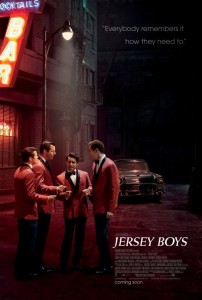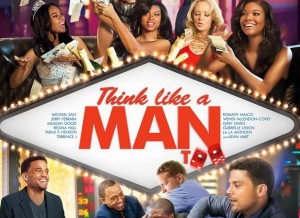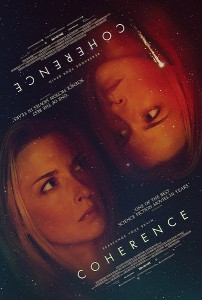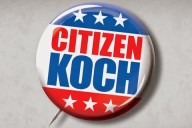Jersey Boys
Posted on June 19, 2014 at 6:00 pm
Winston Churchill famously said that history is written by the victors. In movie terms, that means that when you see the names of just two of the original Four Seasons listed as the film’s producers, it is clear we are going to get their side of the story.
This film, like the Tony Award-winning musical, is the “VH1 Behind the Music”-style story of four guys from the scrappy streets of New Jersey who grow up with only three possible career paths: the military, the mob, and somehow achieving fame. The first two have a high risk of getting killed. The last seems unobtainable. But the four guys, brought together in part by a fifth guy who took the fame option, Oscar-winner Joe Pesci (played in the film by Joseph Russo), became one of the most successful pop acts of all time, with number one hits through the 60’s-70’s.
Clint Eastwood, a composer himself, who made a fine musical biopic about Charlie Parker (“Bird”), has taken on this story, beautifully performed, but too focused on the lives of the group’s members, with very little about what it was that made them stars, or even what the music meant to them aside from a way to get out of New Jersey and support their families.
Tony Award-winner John Lloyd Young plays the undisputed star of The Four Seasons, Frankie Valli, whose pure-toned, remarkably elastic three-octave range was the pure aural joy amidst the sweet harmonies of the Four Seasons sound. It was that voice that persuaded 15-year-old Bob Gaudio (Erich Bergen), already the composer of a hit single (“Who Wears Short Shorts”), to join the group. A handshake deal between Gaudio and Valli continues to this day.
Eastwood and cinematographer Tom Stern give the movie a bleached-out look that gives the skin tones of the cast the consistency of putty. This is intended to express the grittiness of the New Jersey community, but it just looks drab. And it undermines the points that Eastwood and the Jersey boys themselves try to make about their rough-and-tumble environment when the kindly cop knows everyone in the community so well he remembers Frankie’s curfew. Even the mob boss (a deliciously droll performance by Christopher Walken) is so cute and cuddly that he cries openly when Frankie sings a sentimental number. And he’s there to step in when another mob guy is less understanding.
The predictable temptations and stresses of life on the road are predictably laid before us. Some day, I hope someone will make a movie about a famous guy that won’t have the screaming fight with the wife about how he’s never home. This is not that film. And there are the struggles for leadership, the poor judgment with money, also resolved the Jersey way. We briefly see decisions that led to iconic details. After several other names, the group picked “The Four Seasons” from a sign at a bowling alley that would not hire them to perform. “Big Girls Don’t Cry” came from a Billy Wilder movie they saw on television. But we never get a real sense of the era, of how they fit into the culture musically, how they interacted with the fans, how they were affected by experiencing the world outside of New Jersey.
It is absorbing, largely because of excellent performances by all four of the Jersey Boys, but uneven, largely because the script assumes that we will be as fascinated with the relationships of the four men as they are themselves. At the end, Frankie says that for him the high point was finding their sound, just four guys harmonizing under a street light. That’s a moment we never get to experience. The only time we feel their pleasure in performing is in what has to be seen as the curtain call number, an odd piece of theatricality that, after two and a half hours of running time, finally shows us what made the Four Seasons so thrilling to experience.
Parents should know that this film has very strong language including crude sexual references, a non-explicit sexual situation, smoking, drinking, off-screen drug abuse, and references to mob activity.
Family discussion: Why does Frankie take responsibility for what Tony did? Why did he leave his daughter with her mother? What do you think was their high point and why did Frankie pick the one he did?
If you like this, try: other musician biopics like “Ray” and “Walk the Line” and the music of the Four Seasons. And to get a glimpse of Frankie Valli today, look for him in a small role in Rob Reiner’s “And So It Goes” with Michael Douglas and Diane Keaton.



